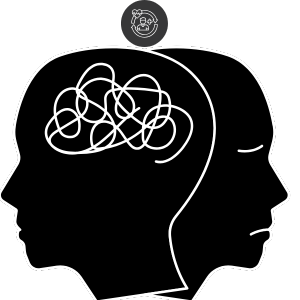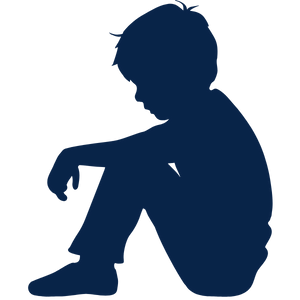
Dr Sathiya Ganesan’s
Helping Children Recover from Trauma with Safety, Strength, and Support.
Trauma can leave lasting emotional wounds in children and adolescents, even when the event is over. Whether due to abuse, loss, medical emergencies, or bullying, these experiences may result in emotional distress, behavioural issues, and long-term psychiatric challenges.
Dr. Sathiya Ganesan, Consultant Child & Adolescent Psychiatrist, provides evidence-based, sensitive, and empowering care to help children heal from trauma, rebuild safety, and move forward with resilience.
Understanding Trauma and Stressor-Related Disorders
Healing Invisible Wounds – Helping Children Recover from Trauma

Trauma-related disorders occur after children experience or witness deeply distressing events. These may include physical or emotional abuse, accidents, loss of a loved one, natural disasters, violence, neglect, or medical procedures.
The child’s emotional brain may stay “stuck” in fear or grief, affecting their daily behavior, thoughts, and sense of safety.
Common trauma-related disorders in children include:
- Post-Traumatic Stress Disorder (PTSD)
- Acute Stress Disorder
- Adjustment Disorder
- Reactive Attachment Disorder (RAD) (typically in early childhood)
- Disinhibited Social Engagement Disorder (DSED)
Each child reacts differently to trauma — early psychiatric care can significantly reduce long-term complications.
Common Signs of Trauma and Stress in Children
Signs may vary with age, but frequently include:
- Recurrent nightmares or sleep disturbances
- Sudden clinginess, fear of being alone, or separation anxiety
- Withdrawal or loss of interest in play and social interactions
- Flashbacks or intense reactions to reminders of the trauma
- Irritability, angry outbursts, or emotional numbness
- Regression (bedwetting, thumb-sucking)
- School refusal or concentration difficulties
- Excessive guilt, sadness, or hopelessness
Some children may not verbalize their trauma but express it through behaviors or physical complaints.
Sensitive Trauma-Focused Evaluation & Diagnosis
Dr. Ganesan provides a safe, non-judgmental space where children can express their emotions at their own pace. His trauma assessment includes:
- Child and parent interviews (with sensitivity to safety and privacy)
- Observation of behavior and emotional responses
- Timeline of events and symptom onset
- Collaboration with schools or caregivers (if appropriate)
A trauma-informed approach ensures that the diagnosis respects the child’s experience and emotional readiness.
Personalized Trauma Recovery Plans
Treatment plans are tailored to:
- Rebuild a sense of safety and emotional stability
- Help children process traumatic memories in a non-retraumatizing way
- Restore trust in relationships and social functioning
- Strengthen emotional resilience and coping skills
Support is gradual, compassionate, and paced according to the child’s needs and healing process.
Trauma-Focused Cognitive Behavioral Therapy (TF-CBT) and Play Therapy
Dr. Ganesan uses evidence-based trauma therapies, including:
- Trauma-Focused CBT (TF-CBT) to help children understand and reframe traumatic experiences
- Play Therapy and Expressive Art Therapy for younger children to process trauma through non-verbal channels
- Narrative Therapy to help teens reconstruct their story with strength and perspective
- Relaxation techniques and grounding exercises to manage distress
Therapy sessions are safe, structured, and designed to gently guide children toward healing.
Medication Support (If Required)
In cases where trauma symptoms include severe anxiety, sleep disturbance, depression, or hyperarousal, Dr. Ganesan may recommend short-term use of medication. This may include:
- Antidepressants (e.g., SSRIs)
- Sleep aids (for persistent nightmares)
- Anti-anxiety medications (used cautiously and only when necessary)
Medication is never a substitute for therapy — it supports the recovery process under close supervision.
Parent Counseling and Family Support
Healing from trauma is a family process. Dr. Ganesan works with parents to:
- Understand trauma responses and emotional triggers
- Create consistent, nurturing routines
- Reduce unintentional reinforcement of fear or avoidance
- Rebuild emotional connection and secure attachment
In some cases, caregivers may also need support to process their own emotional reactions to the child’s trauma.
School Support and Safe Reintegration
When trauma impacts academic performance or social functioning, Dr. Ganesan liaises with schools (with consent) to:
- Provide trauma-informed recommendations
- Arrange gradual reintegration for children avoiding school
- Educate teachers about emotional regulation support
- Reduce environmental triggers in classrooms
A supportive academic environment strengthens a child’s sense of stability.
Secure Online Consultations for Trauma Care
Dr. Sathiya Ganesan offers secure telepsychiatry for:
- Follow-up therapy
- Medication reviews
- Parent check-ins and emotional coaching, Virtual sessions ensure continuity of care, especially when in-person visits are difficult due to emotional triggers or safety concerns.

Why Choose Dr. Sathiya Ganesan?
Dr. Sathiya Ganesan brings expertise, empathy, and calm to every child he works with. He understands that trauma isn’t just about what happened — it’s about how the child experienced and internalized it.
With trauma-informed, child-first care, he helps children:
- Feel safe again
- Understand their emotions
- Build new trust
- Reconnect with joy
Healing is never rushed — but it is always possible.
Help Your Child Heal from Emotional Trauma
If your child is struggling with fear, distress, or withdrawal after a difficult experience, professional support can change their future. Contact Dr. Sathiya Ganesan today to begin a structured, compassionate healing journey for your child.
What causes trauma disorders in children?
Trauma disorders can develop after witnessing or experiencing distressing events such as abuse, accidents, sudden loss, or natural disasters. Even events adults might view as mild can be traumatic for a child.
What is the best therapy for children with PTSD?
Trauma-Focused Cognitive Behavioral Therapy (TF-CBT) is the gold standard, especially when combined with play or expressive therapy in younger children. It helps them process trauma in a safe and structured way.
Can trauma in childhood affect future mental health?
Yes, untreated trauma can lead to long-term mental health issues like depression, anxiety, or substance use. Early intervention greatly reduces these risks and supports healthy emotional development.
How can parents help a traumatized child at home?
Provide emotional safety, routine, validation, and patience. Avoid forcing the child to talk before they’re ready. Dr. Ganesan guides parents on trauma-informed responses and coping strategies.
Can trauma therapy be done online?
Yes, online therapy can be very effective, especially when the child feels safer at home. Dr. Ganesan offers secure virtual sessions with child-friendly tools and therapist-guided support.


